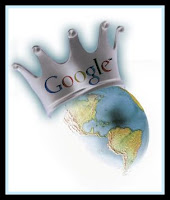Google faces Censorship in more countries besides China.
All eyes have been on Google's battle with the Chinese government since the company announced on Monday that it would no longer maintain its censored Chinese-language search site. Instead, the company began redirecting users of Google.cn to its Hong Kong-based search service, Google.com.hk, where it maintains unaltered Chinese-language search results.
However, China isn't the only front in Google's battle to protect its vision of an open Internet. When Google announced that it might cease operating Google.cn in January, David Drummond, senior vice president of corporate development and the company's chief legal officer, wrote that "this information goes to the heart of a much bigger global debate about freedom of speech."
"These issues are coming up all over the world," says Cynthia Wong, Plesser Fellow and staff attorney at the Center for Democracy and Technology, a nonprofit organization based in Washington, D.C., that promotes an open Internet.
Wong says governments around the world are making policy decisions about material on the Internet--particularly when it comes to questions of child protection, copyright, and cyber attacks. She says it's tempting for them to enlist "technology intermediaries"--companies such as Google that host content or help users find information--to police what users can access. Because Google is so dominant in search and involved with many other Internet services, it often winds up at the center of these controversies, she notes.
Technology has shifted censorship from something that governments do to something that often requires participation from companies, says Ross Anderson, chair of the U.K.-based Foundation for Information Policy Research and a professor of security engineering at the University of Cambridge.
Google faces pressure to censor content in many different countries. Inside Thailand it censors YouTube videos that mock the country's monarch. In Turkey it deletes videos that portray the country's founder, Mustafa Kemal Atatürk, as a homosexual. In France and Germany, Google abides by strict hate speech laws and censors content produced by extremist groups. And in India, it censors pornography and anything the government deems politically dangerous.
Google is involved in a number of squabbles over censorship. The company recently criticized the Australian government for a plan to introduce mandatory filtering for Internet service providers. Google says that the proposal goes too far. In addition to blocking child sexual abuse material (which Google already filters out of its search results worldwide), the company believes that the proposed Australian plan would block "socially and politically controversial material," such as information on safer drug use or euthanasia.
"This type of content may be unpleasant and unpalatable, but we believe that government should not have the right to block information which can inform debate of controversial issues," wrote Iarla Flynn, head of policy for Google Australia.
However, China isn't the only front in Google's battle to protect its vision of an open Internet. When Google announced that it might cease operating Google.cn in January, David Drummond, senior vice president of corporate development and the company's chief legal officer, wrote that "this information goes to the heart of a much bigger global debate about freedom of speech."
"These issues are coming up all over the world," says Cynthia Wong, Plesser Fellow and staff attorney at the Center for Democracy and Technology, a nonprofit organization based in Washington, D.C., that promotes an open Internet.
Wong says governments around the world are making policy decisions about material on the Internet--particularly when it comes to questions of child protection, copyright, and cyber attacks. She says it's tempting for them to enlist "technology intermediaries"--companies such as Google that host content or help users find information--to police what users can access. Because Google is so dominant in search and involved with many other Internet services, it often winds up at the center of these controversies, she notes.
Technology has shifted censorship from something that governments do to something that often requires participation from companies, says Ross Anderson, chair of the U.K.-based Foundation for Information Policy Research and a professor of security engineering at the University of Cambridge.
Google faces pressure to censor content in many different countries. Inside Thailand it censors YouTube videos that mock the country's monarch. In Turkey it deletes videos that portray the country's founder, Mustafa Kemal Atatürk, as a homosexual. In France and Germany, Google abides by strict hate speech laws and censors content produced by extremist groups. And in India, it censors pornography and anything the government deems politically dangerous.
Google is involved in a number of squabbles over censorship. The company recently criticized the Australian government for a plan to introduce mandatory filtering for Internet service providers. Google says that the proposal goes too far. In addition to blocking child sexual abuse material (which Google already filters out of its search results worldwide), the company believes that the proposed Australian plan would block "socially and politically controversial material," such as information on safer drug use or euthanasia.
"This type of content may be unpleasant and unpalatable, but we believe that government should not have the right to block information which can inform debate of controversial issues," wrote Iarla Flynn, head of policy for Google Australia.
